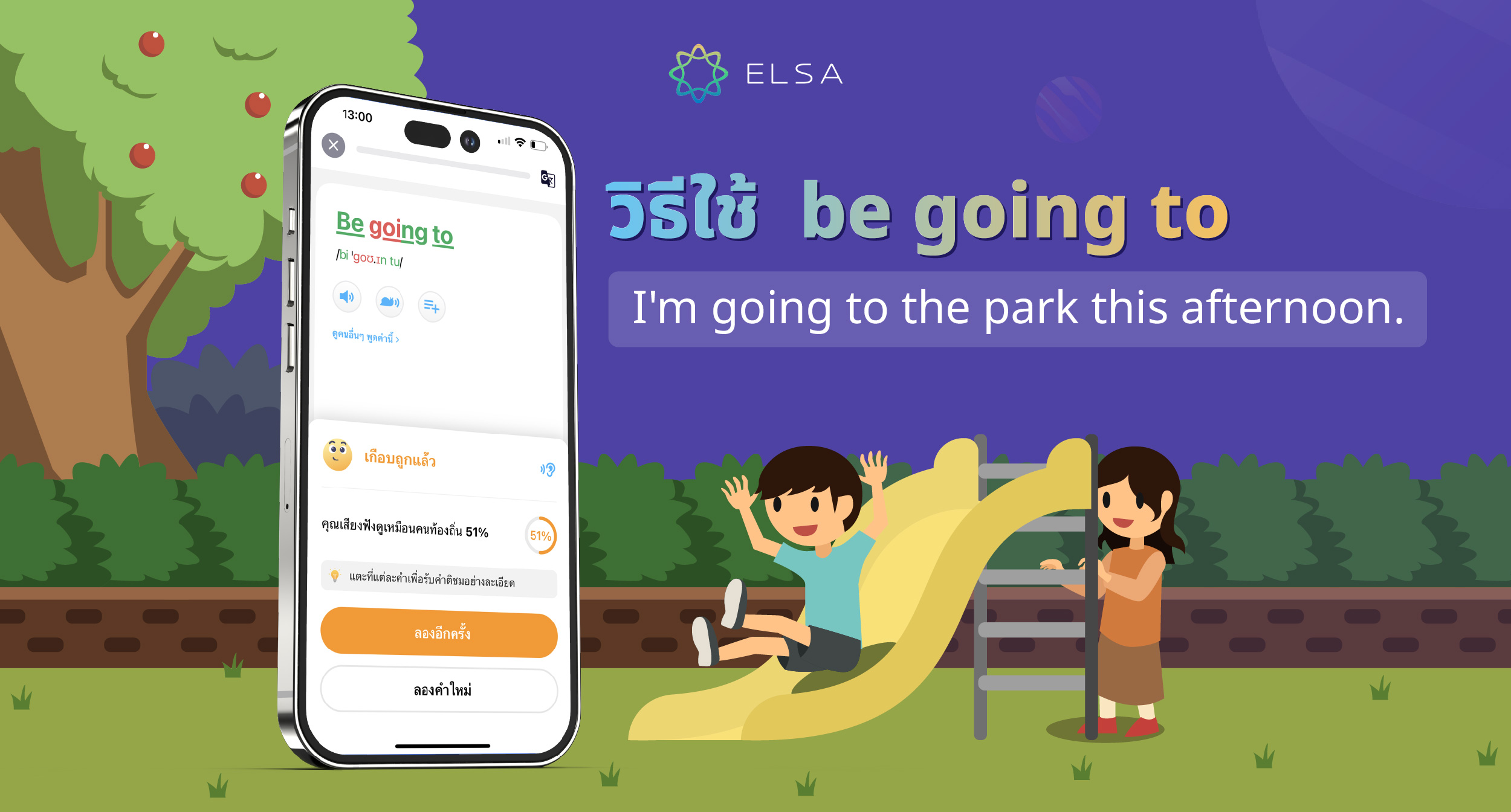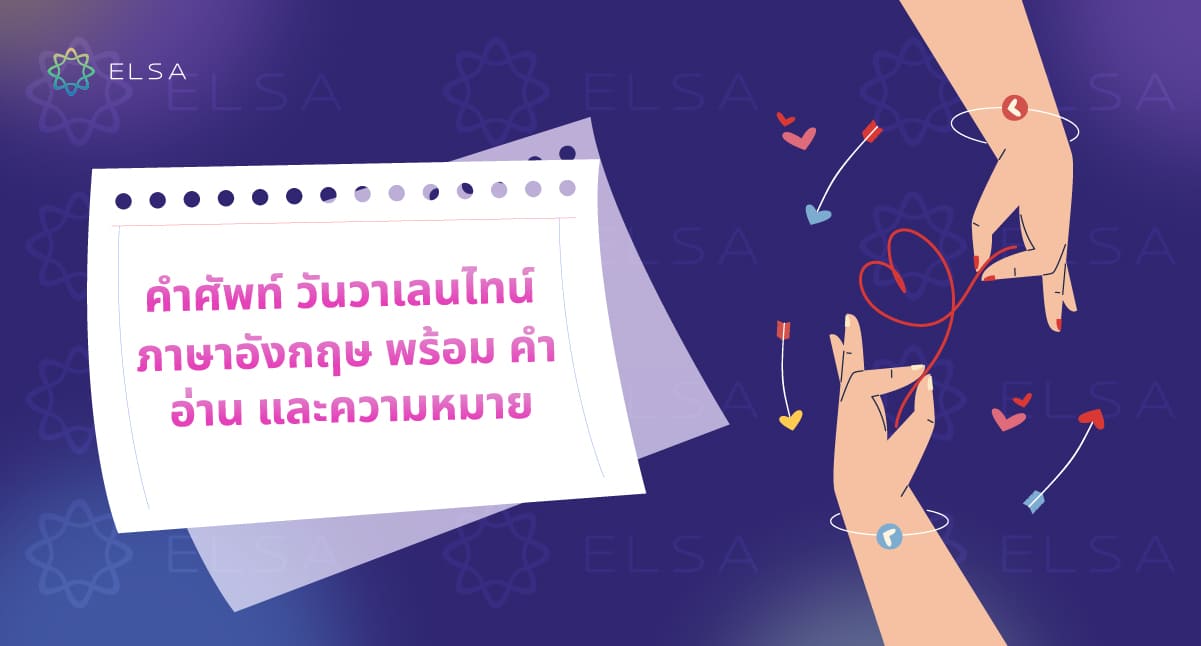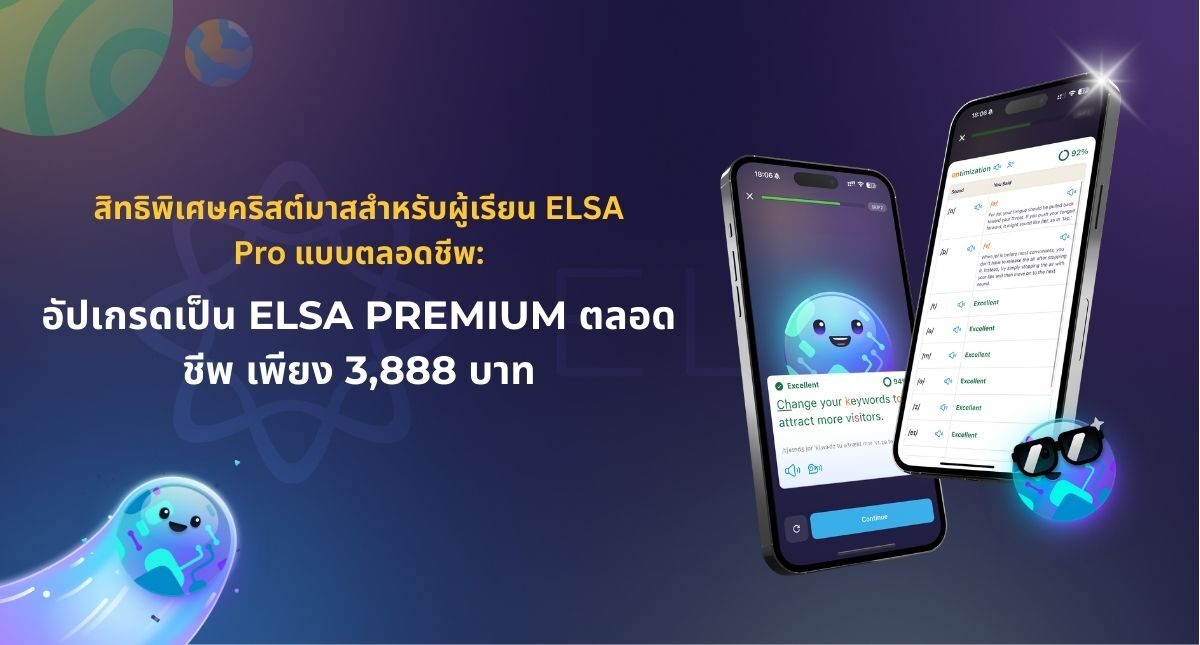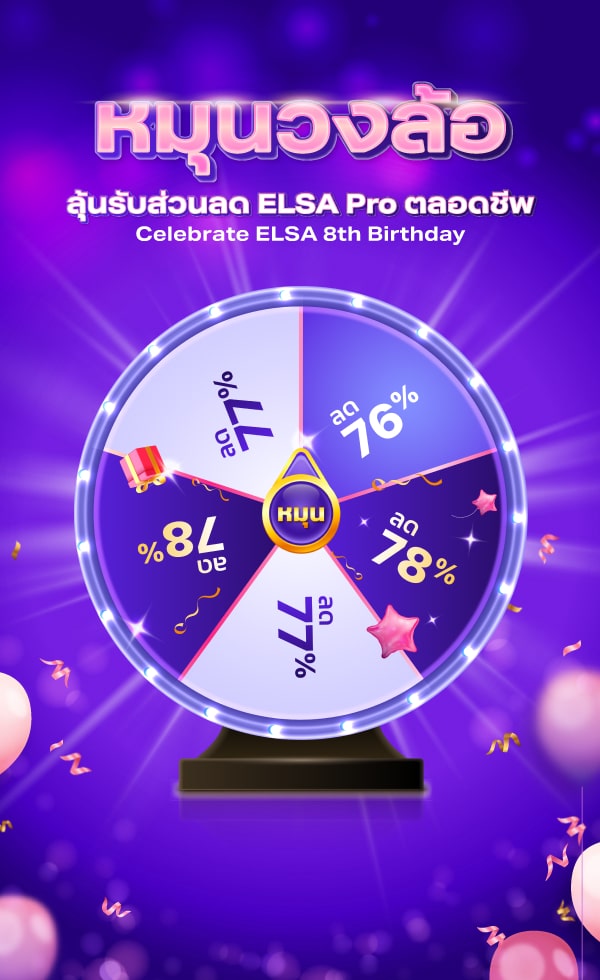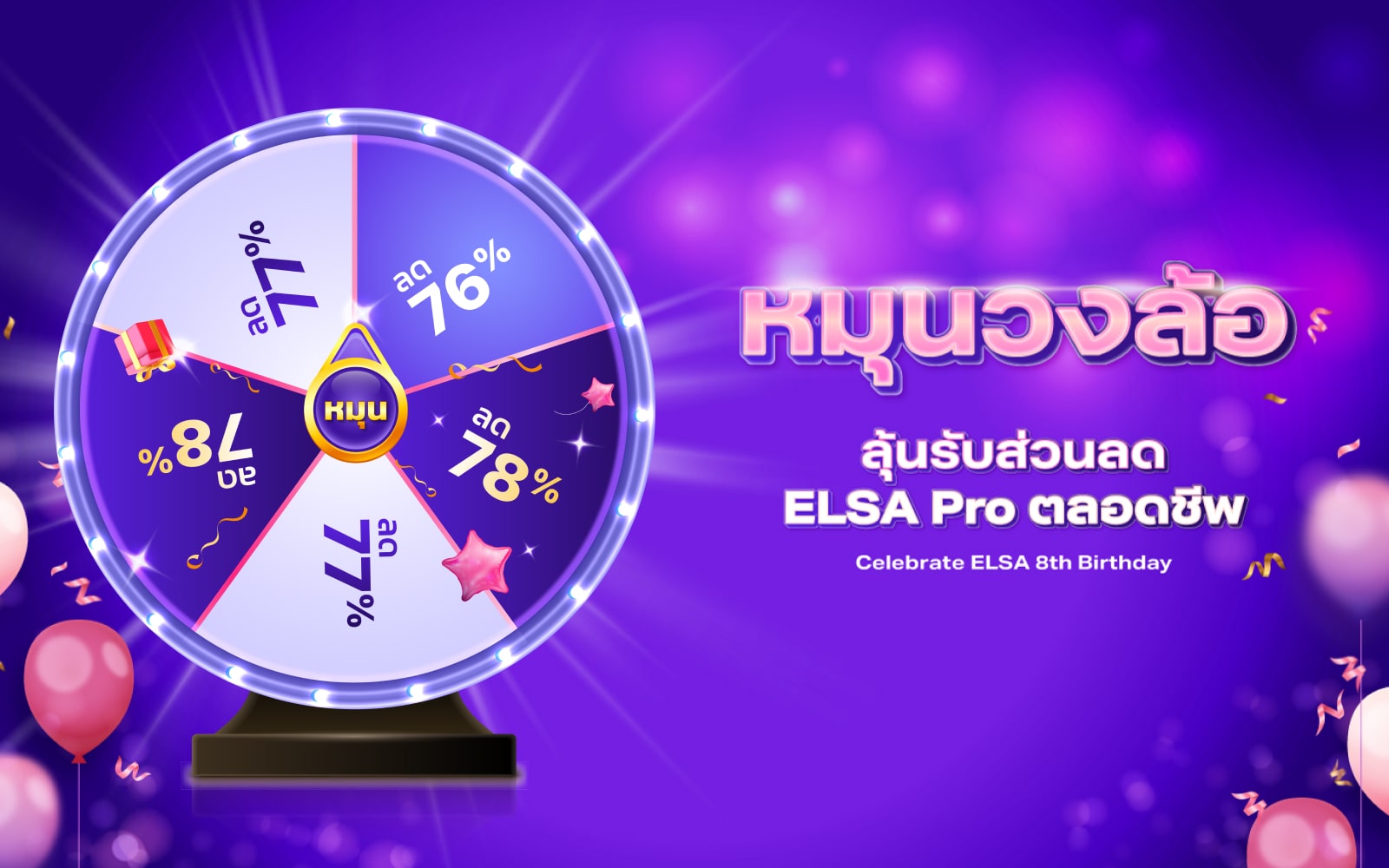โครงสร้าง be going to มักใช้เพื่ออธิบายการกระทำหรือสิ่งที่กำลังจะเกิดขึ้นในอนาคตอันใกล้นี้ งั้น Be going to คืออะไรและ be going to ใช้ยังไง มาดูรายละเอียดการใช้ be going to กับ will ข้างล่างเลย
Be going to คือกาลอะไร?
ในภาษาอังกฤษ be going to หมายถึง ‘จะ’ มักใช้ในโครงสร้างที่แสดงอนาคตอันใกล้ เพื่ออธิบายเหตุการณ์ที่วางแผนไว้ การดำเนินการ และวัตถุประสงค์เฉพาะในอนาคต
สอบก่อนเข้าฟรี

ตัวอย่างประโยค Be going to:
- I‘m going to the park this afternoon. (ฉันจะไปสวนสาธารณะบ่ายนี้)
- She is going to buy a new car next month. (เธอจะซื้อรถคันใหม่เดือนหน้า)

เรียนรู้วิธีใช้ Future Simple Tense พูดถึงสิ่งที่จะเกิดขึ้นในอนาคตอย่างถูกต้องและจำง่ายกันเลย
สูตรกาลอนาคต (To be going to)
โครงสร้าง Be going to แบบบอกเล่าทั่วไป
Be going to โครงสร้างประโยค:
ตัวอย่างประโยคบอกเล่าทั่วไปกับ Be going to:
- We are going to see a new movie after work tonight. (เราจะไปดูหนังเรื่องใหม่คืนนี้หลังเลิกงาน)
- I am going to go on a business trip at the weekend. (ฉันจะเดินทางไปทําธุรกิจสุดสัปดาห์นี้)
- She is going to buy a car after winning the lottery. (เธอจะไปซื้อรถยนต์หลังจากที่ถูกหวย)

โครงสร้าง Be going to แบบปฏิเสธ
โครงสร้าง:
| S + to be + not + going to + V (bare-inf) |
Be going to ตัวอย่างประโยคปฏิเสธ :
- We are not going to see that new movie after work tonight. (หลังเลิกงานคืนนี้เราจะไม่ไปดูหนังเรื่องใหม่)
- I am not going to come home this weekend because of the final exam. (ฉันจะไม่กลับบ้านสุดสัปดาห์นี้เนื่องจากมีสอบปลายภาค)
- She is not going to go jogging tomorrow. Weather forecast says that tomorrow will be rainy. (พยากรณ์อากาศบอกว่าพรุ่งนี้จะมีฝนตก เธอจึงจะไม่ไปวิ่งจ็อกกิ้งพรุ่งนี้)
โครงสร้าง Be going to แบบคําถาม
คําถามแบบ Yes/No question:
โครงสร้าง:
| Be + S+ going to + V (bare-inf)? Yes, S + to be. No, S + to be not. |
ตัวอย่างคําถามกับ Be going to:
- Are we going to see that new movie after work tonight? (คืนนี้หลังเลิกงานเราจะไปดูหนังเรื่องใหม่กันไหม?)
→ No, We are not. (ไม่ เราไม่ไป)
- Are you going to go to the museum with me? (คุณจะไปพิพิธภัณฑ์กับฉันไหม?)
→ Yes, I am. (ไปดิ ฉันจะไป)
- Is she going to buy an apartment in the center city? (เธอจะซื้ออพาร์ทเมนท์ใจกลางเมืองเหรอ?)
→ Yes, She is. (ใช่)
คําถามแบบ Wh-question:
โครงสร้าง:
| WH-question + to be + S + going to + Verb (bare-inf)? -> S + be going to + V (bare-inf) |
Be going to ตัวอย่างประโยคคำถาม :
- What are you going to do tomorrow? (พรุ่งนี้คุณจะทําอะไรเหรอ?)
→ I’m going to relax and read a book tomorrow. (ฉันจะพักผ่อนและอ่านหนังสือพรุ่งนี้)
- How is she going to go to school? (เธอจะไปโรงเรียนยังไง?)
→ She is going to go to school by bus. (เธอจะไปโรงเรียนโดยรถบัส)
- When is he going to come home? (เมื่อไหร่เขาจะกลับบ้าน?)
→ He is going to come home after the meeting. (เขาจะกลับบ้านหลังจากประชุม)

สัญญาณของกาลอนาคตอันใกล้ (To be going to)
กาลอนาคตอันใกล้ (to be going to) มักจะสังเกตได้จากคำวิเศษณ์ที่บอกเวลาและบริบทที่แสดงถึงความตั้งใจ การคาดเดา หรือความคาดหวัง ต่อไปนี้คือสัญญาณที่พบบ่อย:
คำวิเศษณ์แสดงเวลาล่าสุด:
| คำวิเศษณ์ | ความหมาย | ตัวอย่าง (แปล) |
|---|---|---|
| Soon | เร็ว ๆ นี้ | I’m going to visit my parents soon. (ฉันจะไปเยี่ยมพ่อแม่ของฉันเร็ว ๆ นี้) |
| Tomorrow | พรุ่งนี้ | She’s going to meet her friend tomorrow. (เธอจะไปพบเพื่อนของเธอพรุ่งนี้) |
| Tonight / This evening | เย็นนี้ | We’re going to have dinner out tonight. (คืนนี้เราจะออกไปทานอาหารเย็นข้างนอก) |
| Next week / month / year | สัปดาห์ / เดือน / ปี | They’re going to move to a new house next month. (พวกเขาจะย้ายไปบ้านใหม่เดือนหน้า) |
| In a few minutes / hours / days | ในอีกไม่กี่นาที / ชั่วโมง / วัน | It’s going to rain in a few minutes. (อีกไม่กี่นาทีฝนจะตก) |
ประโยคที่แสดงความคิดเห็นหรือการคาดเดาที่มีมูลความจริง:
ตัวอย่าง: Look at those dark clouds! It’s going to rain. (ดูเมฆดำนั่นสิ! ฝนกําังจะตกแล้ว)
ประโยคที่แสดงคำสัญญาและความคาดหวัง:
ตัวอย่าง:
- I’m going to try my best to help you. (ฉันจะพยายามอย่างดีที่สุดเพื่อช่วยคุณ)
- We’re going to make it together! (เราจะทำมันไปด้วยกัน!)
- I’m going to see my favorite singer next week — I can’t wait! (ฉันจะไปดูนักร้องคนโปรดของฉันสัปดาห์หน้า — ฉันแทบจะรอไม่ไหวแล้ว!)
วิธีการใช้กาลอนาคตอันใกล้ (To be going to)
| วิธีใช้ | ตัวอย่าง |
|---|---|
| อธิบายการตัดสินใจหรือแผนงานที่วางแผนไว้ในอนาคต | I am going to take a Math exam this weekend. (สุดสัปดาห์นี้ฉันจะมีสอบวิชาคณิตศาสตร์) |
| ใช้เพื่อทำนายสิ่งที่วิเคราะห์ตามสถานการณ์ปัจจุบันซึ่งมีความเป็นไปได้สูงที่จะเกิดขึ้น | Look. It’s cloudy. It’s going to rain. (ดูเมฆนั่นสิ เต็มท้องฟ้าเลย ฝนกําลังจะตกแล้ว) |
| เล่าถึงแผนที่ทำไว้แต่ยังทำไม่สำเร็จ จากนั้น to be จะถูกผันคำกริยาในอดีตกาล | We were going to go for a picnic but there were some problems. (เรากำลังวางแผนที่จะไปปิกนิกแต่ก็มีปัญหาอยู่) |
| เมื่อคุณต้องการออกคำสั่งหรือต้องการบอกว่าต้องทําอะไรบางอย่าง | Kathy is going to pick up all of those toys right now! Her room is a mess! (เคธี่กำลังจะไปเก็บของเล่นทั้งหมดตอนนี้ เพราะห้องของเธอรกมาก!) |

แยกแยะระหว่าง Will กับ be going to
| เกณฑ์ | Be going to | Will |
|---|---|---|
| โครงสร้าง | S + be (am/is/are) + going to + V (bare-inf) Ex: Sara is going to take a Math exam this weekend. (ซาร่าจะสอบคณิตศาสตร์สุดสัปดาห์นี้) | S + Will + V (bare-inf) Ex: I will be on holiday in July. (ฉันจะไปหยุดพักร้อนในเดือนกรกฎาคม) |
| วิธีใช้ | • ใช้เพื่ออธิบายการดำเนินการที่วางแผนไว้และจัดเตรียมไว้ล่วงหน้า Ex: I go to the clothing store, I’m going to buy a glamorous dress. (ฉันจะไปร้านขายเสื้อผ้า ฉันจะซื้อชุดที่หรูหรา) • ขึ้นอยู่กับสถานการณ์และสถานที่ที่เกิดขึ้น เราใช้คำว่า “be going to” เพื่อคาดการณ์ผลลัพธ์ที่จะเกิดขึ้นในอนาคต Ex: Since John has been practicing hard every day, he is going to win the upcoming marathon. (เนื่องจากจอห์นฝึกซ้อมอย่างหนักทุกวัน เขามั่นใจว่าจะชนะการวิ่งมาราธอนครั้งหน้าได้) | • ใช้เพื่ออธิบายการกระทำหรือปัญหาที่ผู้พูดจะดำเนินการในขณะที่พูดหรือหลังจากพูด การดำเนินการนี้มักไม่ได้วางแผนไว้ล่วงหน้า Ex: What a glamorous dress! I will buy it. (ชุดสวยหรูหรามากค่ะ ฉันจะซื้อมันเลย) • ตามความคิดเห็นของผู้พูดหรือจากประสบการณ์ เราสามารถใช้ “will” เพื่อทำนายได้ Ex: When Sue grows up, she will become a good person. (เมื่อซูโตขึ้นเธอจะเป็นคนดี) • ให้สัญญาหรือยอมรับข้อเสนอในขณะที่พูด Ex: I will gladly help you with this project. (ฉันยินดีที่จะช่วยคุณทําโครงการนี้) |
| สัญญาข้อเสนอ | ไม่ใช้เพื่อคำสัญญาหรือข้อเสนอ | ใช้ในการสัญญา ข้อเสนอ และการตกลงช่วยเหลือทันทีเมื่อพูดคุย ตัวอย่าง: I will gladly help you with this project. (ฉันยินดีที่จะช่วยคุณกับโครงการนี้) |
| การกระทำที่หลีกเลี่ยงไม่ได้ | ใช้สำหรับเหตุการณ์ที่สามารถคาดการณ์ได้จากหลักฐานปัจจุบัน ตัวอย่าง: The car is going to break down. (รถจะพังแล้ว – เสียงเครื่องแปลกมาก) | ใช้สำหรับเหตุการณ์ที่จะเกิดขึ้นแน่นอนและไม่สามารถเปลี่ยนแปลงได้ ตัวอย่าง: The sun will rise tomorrow. (พรุ่งนี้ดวงอาทิตย์จะขึ้น) One day, everyone will have access to clean water. (สักวันหนึ่งทุกคนจะมีน้ำสะอาดใช้) |
ข้อผิดพลาดที่พบบ่อยเมื่อใช้กาลอนาคตอันใกล้ (To be going to)
ใช้โครงสร้างที่ไม่ถูกต้อง
ข้อผิดพลาด:
- ลืมช้ “will” ในอนาคตกาลธรรมดา
- สับสนระหว่าง “be going to” และปัจจุบันกาลต่อเนื่อง
| ประโยคที่ผิด | ประโยคที่ถูก | อธิบาย |
|---|---|---|
| I go to the party. | I will go to the party. | ขาดคำว่า “will” – ต้องใช้คำว่า “will” เพื่อแสดงถึงการกระทำในอนาคต |
| I am going to the party. (เมื่อไม่มีแผนการที่ชัดเจน) | I am going to go to the party. | “Be going to” จำเป็นต้องตามด้วย infinitive เพื่อแสดงแผนที่ได้กำหนดไว้ล่วงหน้า |
สับสนว่าควรใช้เมื่อไร
ข้อผิดพลาดที่พบบ่อย: ไม่มีการแยกความแตกต่างระหว่างการกระทำโดยธรรมชาติ (will) และมีแผน (be going to).
| ประโยคที่ผิด | ประโยคที่ถูกต้อง | อธิบาย |
|---|---|---|
| I am going to help you with your homework. (เพิ่งตัดสินใจที่จะช่วย) | I will help you with your homework. | “Will” ใช้สำหรับการตัดสินใจในขณะที่พูด |
| I will visit my grandmother this weekend. (วางแผนไว้แล้ว) | I am going to visit my grandmother this weekend. | “Be going to” ใช้เมื่อคุณมีแผนหรือความตั้งใจที่เฉพาะเจาะจง |
ไม่มีความแตกต่างทางความหมายระหว่างโครงสร้างทั้งสอง
| ประโยคที่ผิด | ประโยคที่ถูกต้อง | อธิบาย |
|---|---|---|
| I will meet my friend tomorrow. (มีนัดไว้แล้ว) | I am going to meet my friend tomorrow. | “Be going to” ใช้เมื่อมีการนัดหมายหรือวางแผนเรียบร้อยแล้ว |
ใช้คำวิเศษณ์บอกเวลาอย่างไม่ถูกต้อง
ข้อผิดพลาดที่พบบ่อย: การผสมคำวิเศษณ์กับโครงสร้างอนาคตไม่ถูกต้อง
| ประโยคที่ผิด | ประโยคที่ถูกต้อง | อธิบาย |
|---|---|---|
| I will go shopping yesterday. | I will go shopping tomorrow. | “Yesterday” คืออดีต → ไม่สามารถใช้ร่วมกับกาลอนาคตได้ |
ใช้โครงสร้างคำถามที่ไม่ถูกต้องและประโยคปฏิเสธ
| ประโยคที่ผิด | ประโยคที่ถูกต้อง | อธิบาย |
|---|---|---|
| Will you coming with us? | Will you come with us? | หลัง “will” จะต้องเป็น infinitive (V) |
| Are you going come with us? | Are you going to come with us? | “Be going to” มักจะใช้คู่กับ to + V (ต้นแบบ) |
แบบฝึกหัดกาลอนาคตอันใกล้ (To be going to)
แบบฝึกหัด
บทที่ 1: จงเต็มช่องกริยาของ be going to หรือ will ลงในช่องว่างให้ถูกต้อง
1. Lan……….. 10 next Wednesday. (be)
2. Next summer, I ……….. to Paris. My brother lives there and he bought me a plane ticket for my birthday. (travel)
3. It’s getting cold. I ……….. my coat! (take)
4. Are you going to the cinema? Wait for me. I……….. with you! (go)
5. Lan, those bags seem quite heavy. I……….. you carry them. (help)
6. Look at those black clouds. I think it ……….. . (rain)
7. Bye Bye Tien, I ……….. you when I arrive home! (phone)
8. What ……….. you ……….. (do) tomorrow? I……….. (visit) my grandparents.
9. What a beautiful girl! I ………. her out next Monday! (ask)
10. Those watermelons seem delicious. We……….. (buy)
บทที่ 2: จงแต่งประโยคใหม่ในกาลอนาคตอันใกล้
1. I/go on/diet
2. My brother/tidy/his bedroom
3. They/discuss/problem
4. He/explore/a new territory
5. My sister/get married/next year
บทที่ 3: จงเลือกคําตอบที่ถูกต้อง
1. I (have)___________ a good time tonight.
A. is going to have
B. are going to have
C. am going to have
D. have
2. Janet (help)___________ me.
A. is going to help
B. are going to help
C. am going to help
D. helps
3. (he/ drive)__________ the car?
A. Is he going to drive
B. Am he going to drive
C. Are he going to drive
D. Does he drive
4. We (stay)__________ at home tonight.
A. are going to stay
B. am going to stay
C. is going to stay
D. stay
5. (you/ play)__________ tennis with Jenny?
A. Am you going to play
B. Is you going to play
C. Are you going to play
D. Do you play
6. A: Are you busy this evening?
B: No, Not at all. I _______________ do anything.
A. am not going to
B. will
C. am going to
D. don’t
7. A: Are you _______________ go out of the town this weekend?
B: Yes, I am. I am going to visit my sister and my brother.
A. will
B. going to
C. like
D. don’t
8. A: _________ you going to watch the soccer match tomorrow.
B: No, I am not. I ______________ be out of town.
A. Do / am going to
B. Will / will
C. Are / don’t
D. Are / am going to
9. A: Would you like to come over tomorrow?
B: I’d like to, but I am going to ___________ for my English exam.
A. studying
B. studied
C. study
D. studies
10. A: I _______ have a party at my place on Tuesday. Would you like ______?
B: I’d like to. Thank you for inviting me.
A. am going to / to come
B. will / coming
C. am going to / coming
D. will / to come
11. A: Are you going to join Kevin’s birthday party?
B: __________________. I am going to visit my aunt and my uncle.
A. Yes, I can
B. No, I don’t
C. Yes, I will
D. No, I am not
12. Would you like to join my tea party? I am sure you ________ have big fun.
A. will going to
B. are going to
C. going to
D. go to
13. A: Our school is organizing a tennis competition on Friday afternoon. It is _________ in the Sports Center. Would you like to join?
B: It would be great.
A. will be
B. be
C. going to be
D. will going to be
14. We are _____ have a barbecue with friends on Saturday. Would you like to join us?
A. going to
B. will
C. don’t
D. not
15. A: What a nice day! Do you want to go for a walk with me?
B: Sorry, but ________________.
A. I will be there on time
B. I am not going to do
C. I will come with you
D. I am going to help my mother do the household chores

เฉลย
บทที่ 1:
| 1. Will be | 2. Am going to travel | 3. will take | 4. will go | 5. will help |
| 6. is going to rain | 7. will phone | 8. are you doing – am going to | 9. will ask | 10. will buy |
บทที่ 2:
1. I am going to go on a diet.
2. My brother is going to tidy his bedroom.
3. They are going to discuss the problem.
4. He is going to explore a new territory.
5. My sister is going to get married next year.
บทที่ 3:
| 1. C | 2. A | 3. A | 4. A | 5. C | 6. A | 7. B | 8. B |
| 9. C | 10. A | 11. D | 12. B | 13. C | 14. A | 15. D |
คําถามที่พบบ่อย
Be going to ใช้เมื่อไหร่?
ใช้ be going to เพื่อแสดงแผนการในอนาคต ความตั้งใจ หรือสิ่งที่กำลังจะเกิดขึ้นโดยอ้างอิงจากสัญญาณและหลักฐานในปัจจุบัน
วิธีการใช้กาลอนาคตอันใกล้?
ใช้โครงสร้าง S + be + going to + V-inf เพื่อพูดถึงความตั้งใจหรือการคาดการณ์ที่มีมูลความจริงในอนาคตอันใกล้นี้
กาลอนาคตอันใกล้ในภาษาอังกฤษแปลว่า?
กาลอนาคตอันใกล้ในภาษาอังกฤษแปลว่า Near Future Tense หรือมักเรีกว่าโครงสร้าง be going to.
ทำความเข้าใจ Present Continuous Tense การใช้ โครงสร้างอย่างง่าย พร้อมตัวอย่างที่เข้าใจง่าย
ข้างต้นนี้ทุกคนจะตอบได้ว่า be going to ใช้ยังไง และวิธีแยกแยะความแตกต่างระหว่าง Be going to กับ Will หวังว่าข้อมูลข้างต้นจะช่วยให้เพื่อน ๆ เข้าใจโครงสร้างนี้มากขึ้น อย่าลืมติดตาม ELSA Speak เพื่ออัปเดทความรู้ภาษาอังกฤษทุกวันนะ
